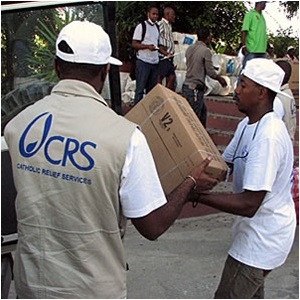Catholic Relief Services is currently hosting the 6th Information and Communication Technology (ICT) for Development Conference (ICT4D) under the theme: “Building Resilience through Innovation”. The conference is aimed at showcasing the use of ICT in relief and development effort and will focus on the ways in which technology enables resiliency by supporting developing communities in reducing vulnerabilities and mitigating, adapting to, and recovering from shocks and stresses in ways that promote the health and well-being of its members. Scheduled to run for 4 days, the conference brings together a multidisciplinary audience that includes government representatives, multi-lateral institutions, international and local relief and development organizations, universities, and technology firms.
The continued success of the ICT4D conferences can be attributed to the opportunities and challenges arising from the fact that access to mobile and internet technology is becoming all but ubiquitous across the developing world. Penetration of mobile cellular technology is fast approaching the 89% mark in developing countries and the penetration of internet usage is approaching 31% (International Telecommunications Union 2013 report). This explosion is ending years of extreme isolation in developing communities and providing poor people with new opportunities to engage in markets and access a myriad of health, education, financial, and advisory services.
“Kenyans have and are rapidly evolving in the use of technology. Figures from the Communications Commission of Kenya 2013 place internet/data and phone subscriptions at 12.4 million and 30.5 million respectively with a further 24.8 million on mobile money transfer platforms” said Carol Bothwell, Chief Information Officer for CRS while speaking at the opening ceremony. “Use of mobile technology is therefore essential for achieving any developmental objectives as it offers a powerful means to connect people to information and digital services”.
One of the success stories discussed at the conference is the Farmbook Business Planner which is implemented in partnership with the Kenya Ministry of Agriculture and provides e-Learning courses in marketing and business that train field extension agents who are equipped with laptops to register farmers into groups and help them develop customized business plans. The farmers can keep track of their operational logistics including costs, revenues, sales and profits. This therefore means that valuable business planning support and advice is now available from even the most remote areas.
In the area of health, Esri is using their technology to map polio risk areas and to track routes covered by polio immunization teams to ensure no households, streets or neighborhoods are missed in national scale immunization programs. Other areas of discussion touched on the education sector where technology and impact investment rather than traditional philanthropy is used to provide low cost education.
The opening ceremony was officiated by Dr. Fred Matiangi, Cabinet Secretary for Information, Communication and Technology who reaffirmed the government’s commitment to embracing the use of technology for the benefit of its citizenry.

